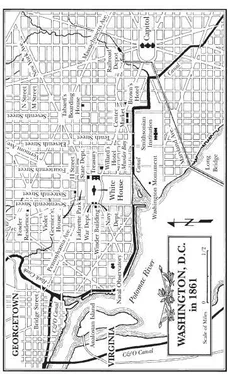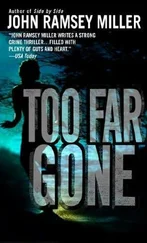John Miller - The First Assassin
Здесь есть возможность читать онлайн «John Miller - The First Assassin» весь текст электронной книги совершенно бесплатно (целиком полную версию без сокращений). В некоторых случаях можно слушать аудио, скачать через торрент в формате fb2 и присутствует краткое содержание. Жанр: Исторический детектив, на английском языке. Описание произведения, (предисловие) а так же отзывы посетителей доступны на портале библиотеки ЛибКат.
- Название:The First Assassin
- Автор:
- Жанр:
- Год:неизвестен
- ISBN:нет данных
- Рейтинг книги:3 / 5. Голосов: 1
-
Избранное:Добавить в избранное
- Отзывы:
-
Ваша оценка:
- 60
- 1
- 2
- 3
- 4
- 5
The First Assassin: краткое содержание, описание и аннотация
Предлагаем к чтению аннотацию, описание, краткое содержание или предисловие (зависит от того, что написал сам автор книги «The First Assassin»). Если вы не нашли необходимую информацию о книге — напишите в комментариях, мы постараемся отыскать её.
The First Assassin — читать онлайн бесплатно полную книгу (весь текст) целиком
Ниже представлен текст книги, разбитый по страницам. Система сохранения места последней прочитанной страницы, позволяет с удобством читать онлайн бесплатно книгу «The First Assassin», без необходимости каждый раз заново искать на чём Вы остановились. Поставьте закладку, и сможете в любой момент перейти на страницу, на которой закончили чтение.
Интервал:
Закладка:
“I think that is a very fine idea,” said Locke.
“He’s from Virginia,” said Rook. “Do you think he will remain loyal?”
“It is possible for Virginians to remain loyal,” snapped Locke. “The general is for the Union.”
“Of course,” said Rook, irritated that Locke would try to twist his words. “The general has made his loyalty quite plain. Lee has not announced his intentions. He has put off his own time of choosing.”
“If Lincoln takes my advice and makes the offer to Lee, that will force the question,” said Scott. “It may even inspire him to do the right thing. He is the best man for the job.”
The general looked at both men. “I would like some time alone now. Is there anything else to discuss?”
“I do have a small suggestion,” said Rook. “Let’s not forget about the personal security of the president.”
“Oh please, Colonel,” said Locke, full of contempt. “Now is not the time for this.”
Scott shook his head. “I can assure you that the president feels entirely secure. This morning he walked to the Presbyterian Church on New York Avenue, attended a service, and walked back-without any kind of escort.”
“I’ve had a couple of men keeping an eye on secessionists. I believe their activity should continue.”
“I just gave you an order to concentrate on the city’s defenses,” said Scott. “I expect you to obey.”
“We need to orient our defenses in two directions-toward an outside threat as well as an inside threat,” persisted Rook. “I know that we can’t place more men around the president. I’m talking about something else: investigating people who may pose a threat to the president, following the same rationale that allowed me to place undercover agents in the lobby of Willard’s two months ago.” Rook reached into his pocket and produced a slip of paper. He rose from his seat and handed it to the general. “I’m not talking about a long list of names. With your approval, I would like to begin surveillance of these people and others like them.”
Scott looked skeptical. He studied the list for a moment. “Why is Robert Fowler crossed off?”
“He left the city this morning. I saw him depart by the Long Bridge myself, just before coming here.”
Scott continued to examine the list. “How did you come up with these names?”
“I just wrote down a few prominent secessionists, or people who are known to hold secessionist sympathies. I only mean to use a handful of men who are already under my command.”
Scott looked up from the list. “Just the other day, the president mentioned to me the problem of what he called the ‘secesh dames.’ It’s a peculiar term, but that is how our president talks. Anyway, I notice that your list is composed entirely of men.”
“Is there a woman you would add to it?”
“Violet Grenier is certainly a ‘secesh dame.’ She is also one of the few Southern sympathizers who maintain friendships on both sides of this controversy.”
“So let me check on her. It might be helpful to know who is within Mrs. Grenier’s circle of influence.”
“Snooping on ladies?” said Locke, sounding exasperated. He looked at the general. “This is absurd.”
Scott nodded, ever so slightly. “You see, here is the dilemma,” he said. “You seem to be suggesting that people who know Mrs. Grenier can’t be trusted.”
“No, I simply think if anybody is conspiring against our city or our president, keeping an eye on someone like Mrs. Grenier may help us avoid a calamity.”
“Mrs. Grenier is an acquaintance of mine,” said Scott.
“William Seward, the secretary of state, is a frequent caller as well. I will ignore the implications of what you have just said. Do not think on this matter any longer. I will not allow it.” Scott then made a show of taking the list of names and ripping it in half. “Moreover,” he continued, “I just gave you an order to devote your attention to the military security of the city, and away from the rumors that have occupied so much of your time. Our main concern can no longer be spies and collaborators. It must be soldiers who intend to march on Washington.”
“I think that is the correct decision, General,” said Locke.
Rook hardly could believe the man’s posturing. He struggled to hold his tongue.
“Good day, Colonel Rook,” said Scott.
Rook said nothing as he got up and left. He stormed out the door of the Winder Building, fists clenched in anger. Across the street he noticed the dingy, boxlike buildings of the Navy and War departments. He peered around them for a view of the White House in their rear, as he usually did when he emerged from one of these meetings with Scott. He imagined Lincoln inside it right now, still talking with his advisors about what to do.
Rook, for his part, had no doubts about his next move: he would disobey Scott for the sake of the president.
The fort was defeated, not destroyed. Round divots pockmarked its brick walls where cannonballs had crashed into them. But the walls still stood high and appeared serviceable, especially with some patching. The parapet was demolished. A few chimneys peeked over the walls, though a couple of these had been smashed. One looked charred.
A small group of gentlemen and ladies in fine dress stood at one of the fort’s angles. A man was addressing them, waving his arms around in excitement. He was obviously telling a story to a tour group. High over their heads, flapping in an ocean breeze, flew a blue-and-white palmetto flag alongside a flag representing the new Confederate nation. The flag of the United States was gone.
Mazorca studied the scene for a few minutes. He had lingered in Charleston for several days after his meeting with Bennett, reading everything he could find on the current crisis. He wanted a complete understanding of the scene before him, and this excursion was the final part of his research.
The ride out to Cummings Point on Morris Island had been long and roundabout. He could not get any closer to Fort Sumter on dry land than this. Perhaps three-quarters of a mile separated the fort from the Battery on the point, where a slanted wall of railroad iron protected the cannon that had fired on the fort just three days earlier.
When Mazorca was satisfied, he turned his horse around and galloped off. He had a train to catch.
EIGHT
WEDNESDAY, APRIL 17, 1861
Little Maggie was the first to see them. She dropped her basket and sprinted down the tree-lined lane, yelping with the unbridled excitement of childhood. A few others heard her and joined the chase. Soon a dozen dark-skinned kids were running toward the three approaching carriages, whooping all the way.
Bennett always enjoyed the approach to his plantation manor. The innocent glee of these children gave him a deep satisfaction. He felt like a hero returning from a long absence, or a general from a great victory. This first encounter with the children never failed to stir the sensation of fatherhood in him. He loved this moment and looked forward to it every time he departed Charleston and headed for his ancestral home-his true home-in the South Carolina countryside. He leaned forward and waved from the window. The kids kept on running. They seemed oblivious to him, but that was okay. It was dusk, and hard for them to see inside the carriage.
Up ahead, at the foot of the porch, a small group of grownup slaves gathered. Sundown was quitting time, which meant that most of them had come in from the fields for the day and were near the manor. Bennett could see a bustle of activity behind them as several of the house servants performed last-second tidying. He knew they would have a hot meal ready for him by the time he walked through the front door.
Читать дальшеИнтервал:
Закладка:
Похожие книги на «The First Assassin»
Представляем Вашему вниманию похожие книги на «The First Assassin» списком для выбора. Мы отобрали схожую по названию и смыслу литературу в надежде предоставить читателям больше вариантов отыскать новые, интересные, ещё непрочитанные произведения.
Обсуждение, отзывы о книге «The First Assassin» и просто собственные мнения читателей. Оставьте ваши комментарии, напишите, что Вы думаете о произведении, его смысле или главных героях. Укажите что конкретно понравилось, а что нет, и почему Вы так считаете.












